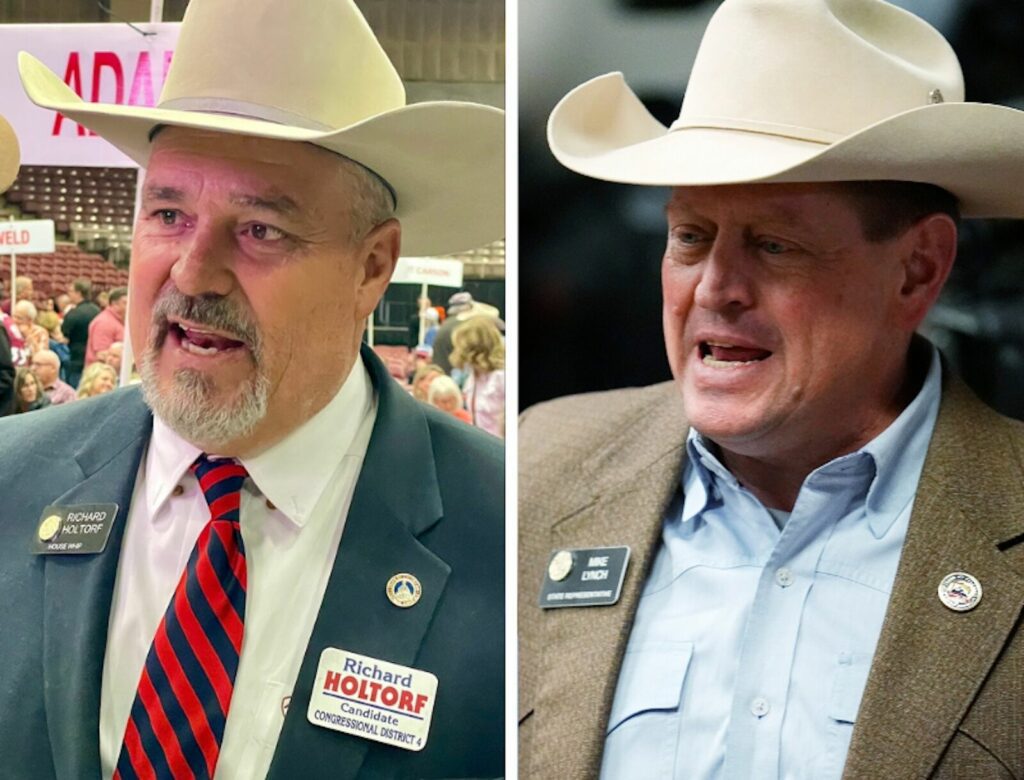Bureau of Land Management proposal sparks questions from both sides of issue

Across the 8.3 million acres of Bureau of Land Management property in Colorado, land is leased for recreation, grazing, oil and gas drilling, logging and soon perhaps conservation.
The proposal to add conservation leases that would allow for land restoration has drawn support from the environmental community, while also sparking questions about practicality from conservationists and ranchers.
The BLM said conservation leases as part of a new Public Lands Rule would not exclude other uses, such as grazing, a point that opponents question. But at the same time the leases would allow outside groups to do restoration projects that would be protected for set a period, likely a maximum of 10 years, a time period that has drawn skeptics.
The agency could also grant conservation leases to businesses who are required to mitigate expected environmental impacts from projects, such as building a transmission line, oil or gas wells or solar panels.
Colorado’s federal lawmakers tout water progress, challenges
“As pressure on our public lands continues to grow, the proposed Public Lands Rule provides a path for the BLM to better focus on the health of the landscape, ensuring that our decisions leave our public lands as good or better off than we found them,” Bureau of Land Management Director Tracy Stone-Manning said in a news release. For example, the agency would be bound to protect intact landscapes and restore degraded habitat in the proposed rule.
The draft rule generated more than 216,000 public comments that the BLM is reviewing ahead of releasing a final rule next year, said Brian Hires, a spokesman for BLM headquarters.
A random sampling of 10,000 public comments taken by the Center for Western Priorities found 92% of them supported the rule, 4.5% opposed it and 3.5% were neutral, according to a news release. The center supports conservation.
Alison Gallensky, conservation geographer with Rocky Mountain Wild in Denver, is among those who supports elevating conservation on BLM land to qualify as a use, alongside grazing and drilling, and considers it a step forward for the agency.
“Conservation has not been considered one of the core uses,” she said.
Locally, BLM land extends west of Colorado 115 south of Colorado Springs and is common between Cañon City and Salida, but the agency plays a more significant role on the Western Slope.
For example, the BLM’s Grand Junction Field Office manages 1 million acres of land, where oil and gas production contributes significantly to the economy.
Mesa County commissioners critiqued the BLM for not holding a stakeholder process ahead of the proposal’s release, including overly vague language and introducing ideas that it may not have the staff or funding to manage.
“Capacity of BLM staff to assume additional management responsibilities is subject to scrutiny and raises valid concerns,” the letter said.
Mesa County Commissioner Cody Davis said he would like to see the Congress consider such major changes to the BLM’s responsibilities, rather than allowing an agency to introduce such a sweeping change that in his opinion would give conservation priority over other uses.
Environmentalists sue to stop Utah potash mine that produces sought-after crop fertilizer
While the BLM has said conservation leases would not take priority, Davis and other critics point to language in the rule that states other leases could overlap conservation leases only if later activities are compatible with conservation, to prove the conversation could take priority.
Paonia rancher Mark Roeber, who shares many concerns with the Mesa County commissioners, is opposing the rule as the president of the Public Lands Council, a group that advocates for cattle and sheep producers who hold grazing permits. He is concerned about the potential for conversation leases to last 10 years or longer and potentially exclude grazing the whole time.
“This is a way to put livestock grazing basically out of business,” he said.
On behalf of the BLM, Hires said, the agency would not “remove or negate existing valid rights, such as grazing.”
On the other side of the issue, Josh Osher, public policy director for Western Watersheds Project, said the rule is not bad as a whole but could stand to see some substantial improvements, particularly around conservation leasing. The leasing proposal might not have much interest from outside groups such as nonprofits to fund habitat restoration if the land may only be protected for 10 years.
“Who is going to do that? … Put in that kind of effort when they don’t know in the long term it’s going to remain?” he said.
For example, the Gunnison sage-grouse, a threatened bird in Colorado, has seen population declines because of habitat loss. Restoring the necessary sage brush for the bird takes decades, Osher said.
Instead of temporary leases, the BLM could allow conservation nonprofits to buy grazing permits from willing sellers and permanently retire them, he said. Such a model has worked around other public lands and it ensures the land has conservation value, he said.
Such work can mitigate the long, slow environmental impacts of grazing, he said, such as soil compaction, erosion and over-widening of streams. When streams are widened the flows become shallower, dirtier and warmer. Cattle also contribute to the loss of streamside vegetation, such as aspens and cottonwoods.
Protecting riparian areas is important because a vast majority of wildlife depend on those corridors, he said.
He also questioned the idea of using conservation leasing as part of the mitigation companies must do to offset damage from projects. Osher would like to see the compensatory land provide permanent benefits, such as providing a conservation on easement that would prohibit future development on private land. Protecting private land would provide additional benefit compared to working on public land that already has set protections.
“We get a lot of bang for our buck when we restore private land,” he said.














